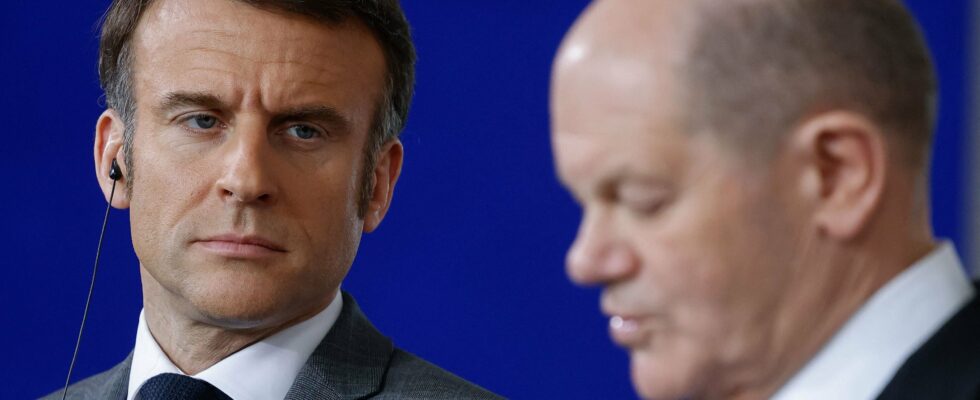It was in Davos last January. Christian Lindner, German Finance Minister, tried to reassure the bosses by repeating that no, Germany was not “the sick man of Europe”, but, it is true, it was a “tired man” , who “needed a coffee”. History does not say whether President Emmanuel Macron and Chancellor Olaf Scholz will toast with pints of beer or mugs of coffee when they reunite in Berlin at the end of May for the French leader’s state visit.
But what is certain is that the Franco-German couple is showing serious fatigue as the differences between Paris and Berlin have continued to grow. “Germany is undoubtedly today one of the European countries whose economic model, made up of multiple dependencies on Russia, China and the United States, is the most disrupted,” notes Emmanuel Macron in the interview given to L’Express.
How can I prove him wrong? Even the Germans understood the need to transform their model. But be careful, not with French methods. “The obsession with the Macronian triptych: we centralize, we plan and we do the performative, that’s not their thing!” summarizes Ludovic Subran, chief economist at Allianz. For Berlin, now is not the time for improvisation. Hence a certain wait-and-see attitude, a source of tension on the French side.”
Accumulation of disagreements
The political context does not help: the shaky coalition led by Chancellor Scholz is painfully preparing for the elections of September 2025, relegating any important decision to later. But even this general asthenia does not make our neighbors forget their fetish for the control of public spending. As much as they accept the fatigue of their economic engine, they are also worried about the state of the French public debt. Two ways of seeing things, which explain the accumulation of disagreements within the couple.
In Paris, we emphasize the sprawling challenges facing Europe and the investment needs required: support for Ukraine, energy transition, protection of the European market… In Berlin, we politely listen to major French speeches, but in on the sly, we have been blocking Germanic influence in European bodies for several years now. “The ideas are French, but behind it are the Germans who press the button,” summarizes Hans Stark, professor of contemporary German civilization at Sorbonne University. Two ways of doing things, which, again, do not help to mend the two countries. And yet, the complementarity between the two largest economies of the European Union is obvious. “We only have points of convergence, but we don’t talk to each other, we even snub each other,” regrets Ludovic Subran.
The recent agreement between the two Defense Ministers on the future Franco-German tank demonstrates a timid desire to move forward. Even if it means burying the angry subjects? “There are enlightened politicians in France and Germany who have said that countries which have the same currency will never again get stuck in quarrels,” said Angela Merkel.
